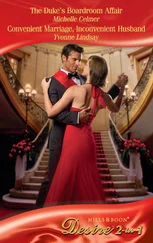Justin McCarthy - The Duke's Motto - A Melodrama
Здесь есть возможность читать онлайн «Justin McCarthy - The Duke's Motto - A Melodrama» — ознакомительный отрывок электронной книги совершенно бесплатно, а после прочтения отрывка купить полную версию. В некоторых случаях можно слушать аудио, скачать через торрент в формате fb2 и присутствует краткое содержание. Издательство: Иностранный паблик, Жанр: foreign_prose, на английском языке. Описание произведения, (предисловие) а так же отзывы посетителей доступны на портале библиотеки ЛибКат.
- Название:The Duke's Motto: A Melodrama
- Автор:
- Издательство:Иностранный паблик
- Жанр:
- Год:неизвестен
- ISBN:нет данных
- Рейтинг книги:5 / 5. Голосов: 1
-
Избранное:Добавить в избранное
- Отзывы:
-
Ваша оценка:
- 100
- 1
- 2
- 3
- 4
- 5
The Duke's Motto: A Melodrama: краткое содержание, описание и аннотация
Предлагаем к чтению аннотацию, описание, краткое содержание или предисловие (зависит от того, что написал сам автор книги «The Duke's Motto: A Melodrama»). Если вы не нашли необходимую информацию о книге — напишите в комментариях, мы постараемся отыскать её.
The Duke's Motto: A Melodrama — читать онлайн ознакомительный отрывок
Ниже представлен текст книги, разбитый по страницам. Система сохранения места последней прочитанной страницы, позволяет с удобством читать онлайн бесплатно книгу «The Duke's Motto: A Melodrama», без необходимости каждый раз заново искать на чём Вы остановились. Поставьте закладку, и сможете в любой момент перейти на страницу, на которой закончили чтение.
Интервал:
Закладка:
In a further regard, moreover, the two new-comers, however different they might seem in build of body and in habit of apparel, resembled each other more closely than they resembled any of the earlier occupants of the Inn room. There are castes in rascality as in all other trades, classes, professions, and mysteries, honorable or dishonorable, and this latest pair of knaves belonged patently to the more amiable caste of ruffianism – a higher or a lower caste, as you may be pleased to look at it. In the bold eyes of the gaudily clad Gascon, as in the uneasy eyes of the sable-coated Norman, there was a quality of candor which might be sought for in vain among the rogues that greeted them. Certainly neither the Gascon nor the Norman would have seemed reassuring figures to a timid traveller on a lonely road, and yet there was, as it were, a kind of gentility in their composition which would have been obvious to a reader of men, and would have approved them as, in their way and of their race, trustworthy. Here, the reader of men would say, are a brace of assassins who hold a sort of honor in their hearts, who would never skulk in a corner to stab an enemy in the back, nor wrong a wretched woman who plainly was unwilling to be wronged – a brace of heroes. And the reader of men would for once in a way, have been in the right.
II
THE THRUST OF NEVERS
At the sight of the two men, the ruffians at the table set up a roar of welcome and bumped their mugs lustily upon the board to a chorus of greeting, in which the names of Cocardasse and Passepoil were repeated in a variety of accents from German to Italian, from Portuguese to Biscayan, from Spanish to Breton, but in all cases with the same degree of enthusiasm and admiration. The big, gaudy fellow, patently pleased by the tribute, struck a magnificent attitude and extended a benedictory hand towards the drinkers. "Courage, chanticleers!" he shouted – "comrades all," and, advancing towards the table, gave Staupitz a lusty slap on the back, while Passepoil, following nervously behind him, whispered beneath his breath and behind his lifted hand a timid "Greeting, gentlemen," which was hardly audible in the buzz of voices. But while Cocardasse was busy engaging clasps of the hand with the men of many nationalities who had been waiting for him, the attention of Passepoil was entirely diverted by the appearance of the Inn maid, Martine, who at that moment appeared upon the scene with a fresh pitcher of wine in honor of the fresh arrivals. The lean and pale man blushed and sighed as he saw her. Those in the room that knew the Norman were well aware that love of woman was his weakness, and they paid no heed to his attempted philandering, taking it, so far as they thought of it at all, as a matter of course and honest Passepoil’s way.
Though Martine was as little comely as need be, she was still a woman, and a woman Passepoil had never seen before, and, sidling towards her, he endeavored to enter into amicable conversation, which was received but indifferently well. By this time Cocardasse had finished his greetings, and, drawing back a step or two, surveyed the company with a look of satisfaction not unmingled with astonishment.
"Why, Papa Staupitz," he said, "here we have many friends and all fine blades. This is indeed a pleasure party." His eyes travelled from the table to the window, where the man in black still sat and read quite unconcernedly. Something like surprise puckered Cocardasse’s rubicund face. "You here, Æsop?" he questioned.
The man whom he called Æsop looked up for a moment from his book and shrugged his shoulders. "Devil knows why!" he said. "If they want me, they don’t want the others. If they want the others, they don’t want me."
His remarks were interrupted by a slight scuffle between Passepoil and Martine. Passepoil had so far conquered his natural timidity as to go to the length of soliciting a kiss from the Inn maid. She had successfully repulsed him with a slap on each of his cheeks, and had slipped from the room. While Passepoil was rubbing his face ruefully, Æsop went on, sardonically:
"What do you think of it, friend Cocardasse? Here we are, nine of us, nine picked swordsmen, and we are going to fight one man."
Cocardasse had returned to the table and filled himself a monstrous measure of wine. He was thirsty, an habitual state with him, and he eyed the rough wine lovingly.
"Who is the giant who is going to fight nine of us?" he asked as he lifted his cup from the board.
Passepoil, who, enjoying like his comrade an abiding drought, had followed his example, hoping to find consolation in wine for the disappointments of love, also expressed his surprise.
"Every man of us can fight three men at a time," he whispered, timidly, and he, too, lifted his glass.
"Who is the man, anyhow?" said Cocardasse, cheerfully, making the wine swing in the vessel; and Staupitz answered him, slowly:
"Louis, Duke of Nevers."
The effect of this simple speech upon the new-comers was exceedingly remarkable. Cocardasse seemed suddenly to forget his thirst, for he set down his untasted mug upon the table. Passepoil did the like. "Oh!" said Cocardasse, solemnly. "Ah!" said Passepoil, gloomily.
For a few appreciable seconds of strained excitement to those that watched them the pair remained rigid, staring at their rejected wine-cups, as if the liquor they contained had some monstrous Medusa-like property of stiffening into stone all those that presumed to drink of it. Then the Gascon, slowly turning his head, gazed steadfastly at the Norman; and the Norman, slowly turning his head, gazed steadfastly at the Gascon, and then the pair, so gazing, both wagged their polls very solemnly indeed, and puckered their eyebrows and betrayed many other very visible signs of dissatisfaction, not to say of discomfort. Then Cocardasse muttered to his comrade the words "Louis de Nevers," as if they were not at all to his liking, and Passepoil, in his turn, repeated the words, as if they were not at all to his liking, and then they both sighed and grunted and were silent.
The look of stupefaction, not to say consternation, on the faces of the new arrivals was patent to every man in the room – most patent and most unpalatable to the leader of the gang. Staupitz thrust his red, Teutonic face forward with a mocking look and a mocking voice as he grunted: "Seems to me you don’t relish the job."
Cocardasse nodded at him with perfect affability, and patted his shoulder with a massive, red hand. "Papa Staupitz," he said, good-humoredly, "you read me like a book."
"In the largest print," added Passepoil, who generally supplemented any remark of his comrade with some approving comment of his own.
Staupitz swung round in his chair, upsetting a tankard in his angry movement, as he glared, all rage, at the strangely assorted pair. "Are you afraid?" he asked, with guttural contempt.
Cocardasse grinned and showed his large, dog-like teeth. "I am not afraid of you, Papa Staupitz," he said, quite cheerfully, "nor of any man in this room, nor of all the men in this room."
Passepoil added, stammering in his speech, blinking his pink eyelids rapidly: "If any gentleman doubts the point, there is a pleasant bit of kitchen garden outside where we can adjourn and argue the matter pleasantly together, as gentlemen should."
Nobody present seemed inclined to pick a quarrel either with the ebullient Gascon or the hesitating Norman. The six bullies at the table knew well enough, and savage, masterful Æsop at the window knew well enough, that the swaggering Gascon was the first fencing-master in Paris, and that his colleague, the Norman, for all his air of ineffable timidity, was only second to him in skill with the weapon and readiness to use it. There was a moment’s silence, and then Cocardasse observed: "I’m afraid of just two men in the world."
Читать дальшеИнтервал:
Закладка:
Похожие книги на «The Duke's Motto: A Melodrama»
Представляем Вашему вниманию похожие книги на «The Duke's Motto: A Melodrama» списком для выбора. Мы отобрали схожую по названию и смыслу литературу в надежде предоставить читателям больше вариантов отыскать новые, интересные, ещё непрочитанные произведения.
Обсуждение, отзывы о книге «The Duke's Motto: A Melodrama» и просто собственные мнения читателей. Оставьте ваши комментарии, напишите, что Вы думаете о произведении, его смысле или главных героях. Укажите что конкретно понравилось, а что нет, и почему Вы так считаете.












